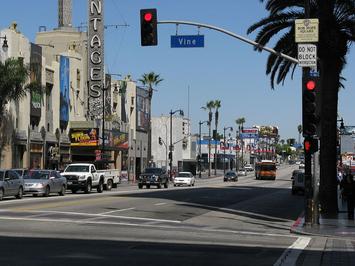
California has, at least to date, escaped the worst effects of Covid-19. Despite predictions by Governor Gavin Newsom that upward of 25 million Californians would become infected, after six weeks of lockdown the state, despite having twice as many residents as New York, has suffered only one-eighth the number of cases and considerably less than one-tenth the fatalities. The numbers could worsen, but if the rate of growth of infection slows, as is now occurring even in New York, the Golden State may well avoid the worst-case scenario.
Less thought has gone into how the aftermath of the pandemic could intensify other long-term problems that the state leadership would prefer to ignore. Most critical will be the effect of the virus on the state’s already-severe income inequality and poverty. The pandemic has disproportionately hurt poor and working-class people, precisely those Californians already suffering under the state’s strict regulatory regime. The huge but generally low-paying tourism industry is particularly vulnerable to declines in travel, especially from Asia.
Not all the pain will be felt by the working classes, though. The pandemic is likely to stall or even derail some of the new IPOs that the state relies on for revenues. A reversal in real-estate price inflation, another key source of state funding, also seems likely. California faces a likely scenario of falling revenues and soaring demand for government services.
Citing a series of annual budget surpluses, some progressives have argued that California has developed a “fiscally responsible” form of sustainable capitalism. Yet, as even former governor Jerry Brown predicted, the state’s “Johnny one-note” tech economy would eventually stumble, reducing the huge returns on capital gains that remain critical to state revenues. Even before the coronavirus, this lapse seemed imminent, given the recent poor performance of tech IPOs and the $100 billion drop in the value of privately held “unicorn” startups, once seen as destined to become the next great source—a la Google and Facebook—of income for state coffers. Capital-gains payments, which doubled last year to over $15 billion, could now drop by a large margin, as occurred in 2008, drilling a big hole in the budget.
The coronavirus-induced recession will make clear how tenuous California’s financial condition has become. The state’s much-touted $21 billion operating-budget surplus is likely to disappear entirely under the weight of declining revenues and rising welfare costs. Since March, California’s chronically underfunded unemployment-insurance claims grew by 1.6 million filers.
Coupled with a drop in revenues, expanding demand for services will prove catastrophic. More than two-thirds of California cities have no funds set aside for retiree health care and other retirement expenses; the budgets of 12 of the 15 largest cities are in the red. The state overall owes $1 trillion in pension debt, notes former Democratic state senator Joe Nation. Truth in Accounting in 2019 placed California, despite the tech boom, 42nd in fiscal health among the states.
Even before the pandemic, CalPERS, the state’s public-employee retirement fund, was “catastrophically underwater,” with barely two-thirds of the funds to meet its commitments. Given the ongoing expansion of California’s generous welfare state, these pension obligations can be met only with much higher taxes and cutting back on infrastructure and other expenditures. Before the virus, the state’s welfare system already covered roughly one in four households in the state, according to a recent Public Policy Institute of California report, and this proportion now is likely to increase. By some measurements, state aid to families—rental subsidies, food assistance, energy, and other benefits—is higher than in social-democratic welfare states like France and Sweden.
Read the rest of this piece at City Journal.
Joel Kotkin is the Presidential Fellow in Urban Futures at Chapman University and Executive Director for Urban Reform Institute — formerly the Center for Opportunity Urbanism. His last book was The Human City: Urbanism for the Rest of Us (Agate, 2017). His next book, The Coming of Neo-Feudalism: A Warning to the Global Middle Class, is now available to preorder. You can follow him on Twitter @joelkotkin
Photo credit: Alen Ištoković via Wikimedia under CC 3.0 License.












